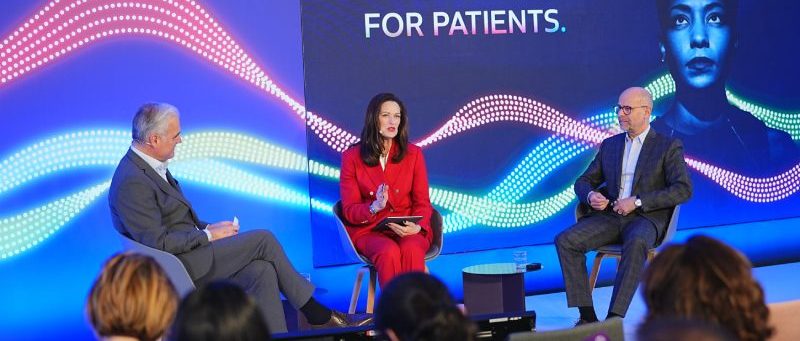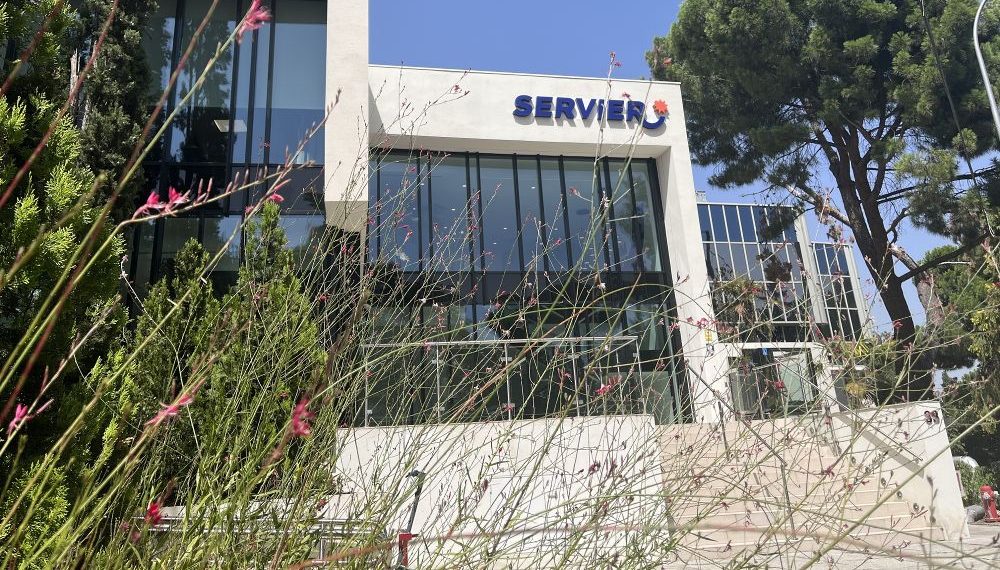The pharmaceutical industry met in Buenos Aires today for the traditional annual IQVIA World Review. Various speakers described the current industry panorama at both the global and local levels. The consultancy projects a fall of between -1 and -3% for Argentina in 2023.
Today, Wednesday May 24, the specialist consultancy IQVIA held its World Review. The event took place in the morning at Goldencenter in Buenos Aires’ Parque Norte with the presence of companies and industry leaders.
The event was opened by the executive director of the IQVIA Institute in the United States, Murray Aitken. He focused on an analysis of the global pharmaceutical market. He forecast that in 2024 the global market will resume the growth rates seen pre-pandemic and indicated that the pharmaceutical industry will grow at a compound annual rate of between 3 and 6% from here to 2027, when it will reach a turnover of $1.9 trillion. Along these lines, he specified that oncology and obesity will lead the growth, while immunology will slow as a consequence of the development of biosimilars.
He also unfurled a map and put the magnifying glass on regions with a view to 2027. He said that Latin America, Pacific Asia, India, Africa and Middle East will see sales grow more than 10% in volume, and more of 30% in revenue. Meanwhile, in Western Europe, the growth in volume is estimated at 2% and revenue 29%. In Eastern Europe, the figures will fluctuate around 1% and 45%, respectively and in North America, 0% in volumes and 22% in revenue.
After Murray came the turn of a panel comprising Eduardo Franciosi, director of CILFA; Juan Jose Marconi, director of COOPERALA and Mariel Peitiado, Head of Regional Business R&D at IQVIA; moderated by the consultant Eduardo Tchouhadjian. There the central theme was clinical research. Peitiado described the regulatory framework for clinical trials in the country and said Argentina had become an excellent destination to promote the development of more clinical research. The IQVIA executive shared data from a survey from the Ministry of Science and Technology showing that the number of trials rose 130% in the last five years and that almost all were from phases II and III.
The floor was then taken by representatives of CILFA and COOPERALA. First of all, Franciosi highlighted that Argentina’s health sovereignty stood out during the pandemic. The country was able to fend for itself to face logistics and import restrictions. The executive stressed that the pharmaceutical industry represents 5% of the industrial value produced in Argentina, which places it a notch above the automotive industry. Franciosi explained that the sector invested $44 billion in R&D and paid $230 billion in 2022, equivalent to 1.3% of national tax collection.
Marconi started his presentation referring to Argentina’s Import System, SIRA, and said that such a strategic industry as the pharmaceutical sector cannot be affected by the foreign exchange shortage, which delays the acquisition of technology for new investments.
This was followed by a round table focused on high cost products. David Aruachan, general manager of the Superintendence of Health Services began. The official reviewed the redistribution solidarity fund and summed up the asymmetries to be resolved. He defined the situation as extremely complex, with an estimated collection of $306.346 billion facing an deficit already running at $132 billion.
Another SSS official, Juan Pablo Denamiel, referred to the changes introduced by the new SURGE system, which replaced the S.U.R. Among the improvements, he highlighted the simplification of rules and procedures, the paperless process, more accurate registration and the identification of oligopolistic technologies.
Eduardo Roqueta, of Scienza on behalf of the Argentine Chamber of Specialist Medication Providers CADME, referred to several points related to the chain of payments. He said that there were signs of more demand for financing from payers, refloating uncertainty from providers. Roqueta added that reform of healthcare system must be included in the political agenda, along with others such as labour, tax and justice.
Ariel Cabanas, from Drofar and VP of the Argentine Chamber of Specialist Drug Distributors, CADDE, described the current context putting the focus on digitization. He suggested that a need to deepen the relationships among all stakeholders in order to build new and innovative financing tools. Aruachan brought up the joint purchase tool used to acquire hemophilia treatments. And he also mentioned the shared risk strategy, recently created and implemented for the acquisition of the gene therapy Zolgensma.
Closing the event, Juan Manuel Santa Maria, IQVIA General Manager for Southern Cone gave a talk entitled «Panorama of the Argentine pharmaceutical market«. The executive outlined the main characteristics and trends of the local industry. He said that size of the market, measured in dollars at the official exchange rate, represented US$ 14.448 billion in the 12 months to February of this year. In addition he said that in this period the local market presented a slight growth of 0.2% and volume of 834.4 million units and a rise in turnover of 67.6%. This performance is well below the accumulated inflation in the same period. Santa María also pointed out that the economic crisis, budget constraints and the loss of purchasing power among consumers will influence the market outlook.
The specialist detailed that in Argentina the leading lines are reparative pathways, with a 90.1% growth in billing in the last 12 months measured to February; in second place is oncology with a 86.5% rise. Then there are the lines of pain and inflammation, with a rise from 84,4%; and endocrinology, up 82.9%.
Last year, the event returned face-to-face after two years of the COVID-19 pandemic. The conference discussed the coronavirus; biotherapy; financing and refund policies in Latin America and Europe; the consumer trends in retail; and the development of new virtual sales channels. See article World Review 2022.

















